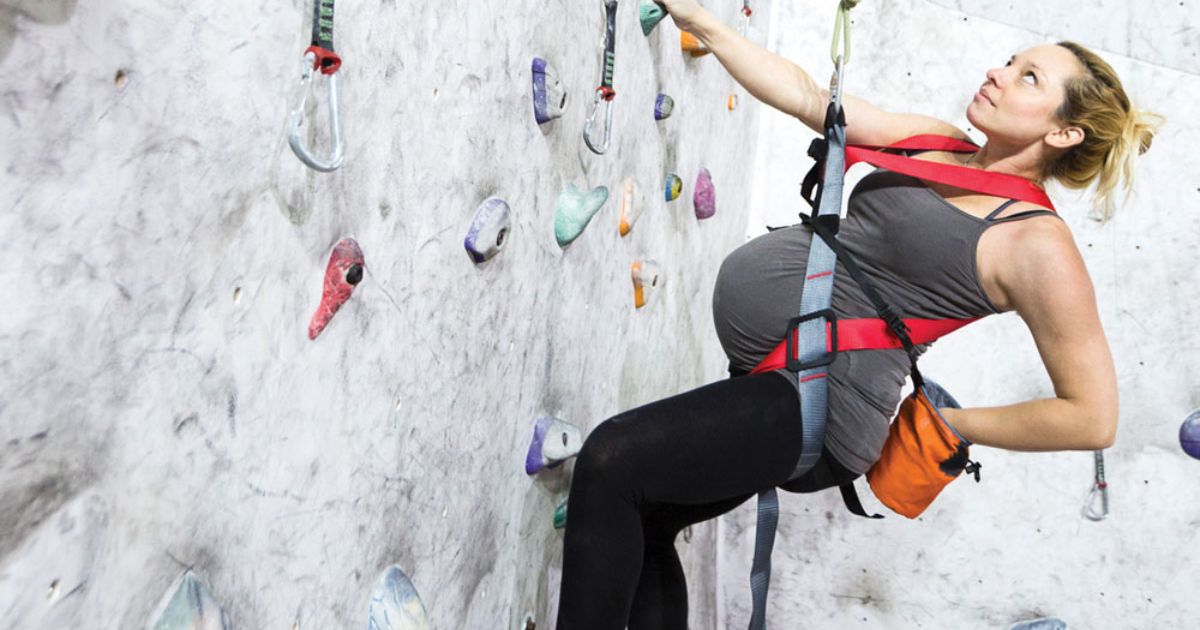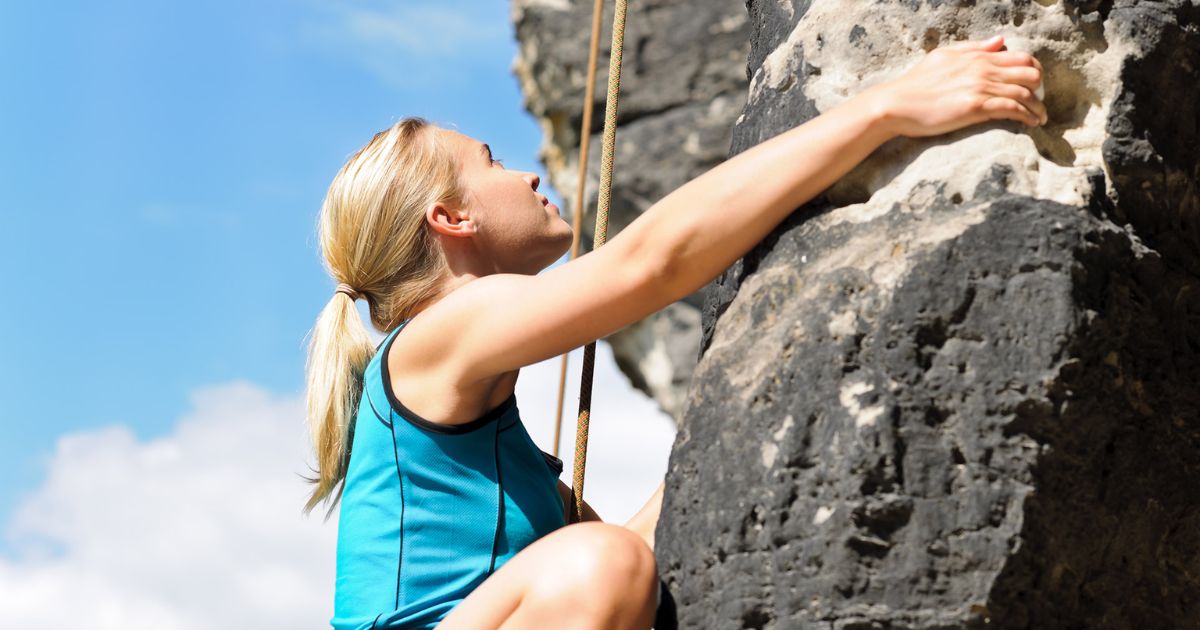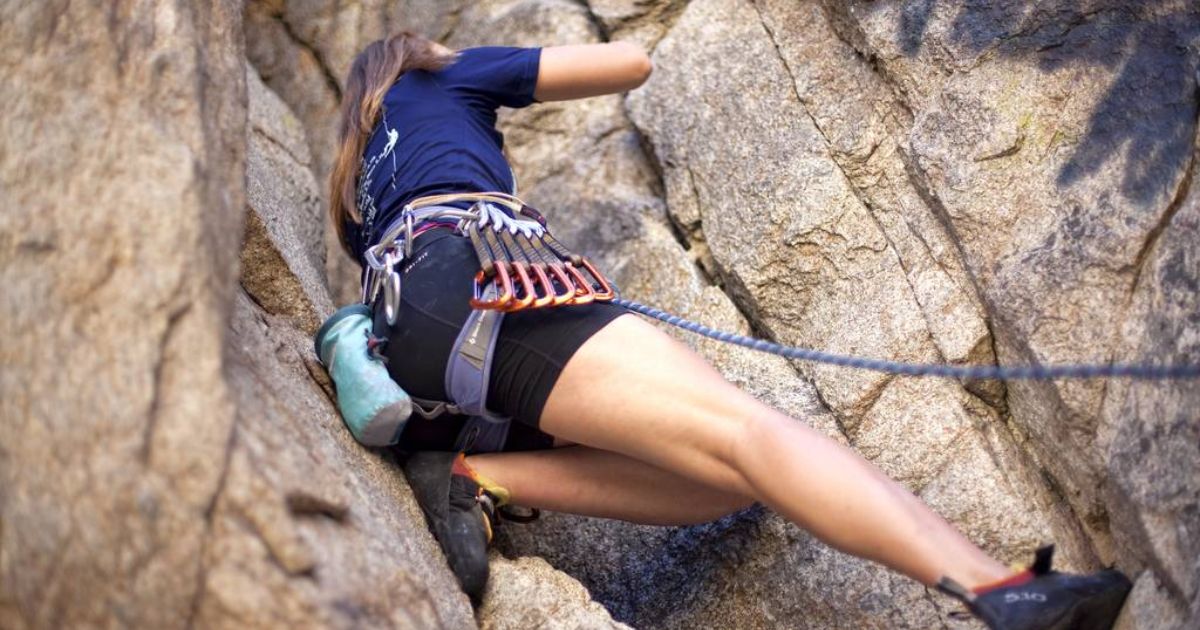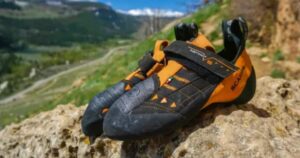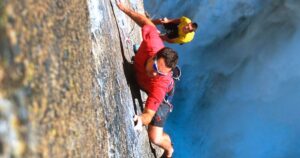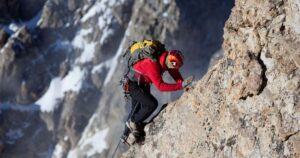Are you expecting a little climber on the way? Wondering if you can continue pursuing your passion for rock climbing during pregnancy? This article explores the potential risks, benefits, and safety precautions of rock climbing while pregnant. We’ll provide expert opinions, evidence-based medical advice, and personal stories from experienced climbers who have navigated the world of rock climbing during pregnancy. So, lace up your climbing shoes and let’s dive into this exciting and important topic.
Key Takeaways
- Rock climbing during pregnancy carries potential risks and safety precautions should be taken into consideration.
- Consultation with a healthcare provider is important before engaging in any physical activity.
- Rock climbing can provide physical fitness advantages such as improved cardiovascular health and increased flexibility.
- Engaging in rock climbing while pregnant can contribute to mental well-being by reducing stress and promoting a sense of accomplishment.
Potential Risks of Rock Climbing During Pregnancy
Rock climbing during pregnancy poses potential risks to both the mother and the developing fetus due to the increased chances of falls and the physical demands placed on the body. Engaging in this activity can lead to serious injuries, such as fractures, sprains, or even miscarriages. The high-impact nature of rock climbing can put a strain on the joints and ligaments, which are already more vulnerable during pregnancy due to hormonal changes. Additionally, the risk of falling is heightened as the baby bump grows, affecting balance and stability. It’s important to recognize that Rock Climbing Dangerous activities should be avoided during pregnancy to ensure the safety of both the mother and the baby.
It is important for pregnant women to prioritize their safety and take precautions to minimize these risks. Consulting with a healthcare provider and seeking their guidance on whether rock climbing is safe during pregnancy is crucial. Understanding and adhering to proper safety measures, such as wearing appropriate gear and avoiding high-risk routes, can help reduce the potential dangers. By acknowledging these risks and taking necessary precautions, expectant mothers can ensure the well-being of themselves and their unborn children. Transitioning to the subsequent section about the ‘benefits of rock climbing while pregnant’, it is essential to explore the positive aspects of engaging in this activity during pregnancy.
Benefits of Rock Climbing While Pregnant
Rock climbing while pregnant can provide several benefits for expectant mothers. Firstly, it can help maintain physical fitness and strength, which is important for a healthy pregnancy and labor. Additionally, rock climbing can contribute to mental well-being by reducing stress and promoting a sense of accomplishment and empowerment. However, it is crucial for pregnant women to consult with their healthcare provider before engaging in any physical activity, including rock climbing, to ensure it is safe for both the mother and the baby.
Physical Fitness Advantages
Engaging in rock climbing while pregnant offers numerous physical fitness advantages. Rock climbing during pregnancy is a form of prenatal exercise that provides several benefits for expectant mothers. Here are some of the advantages:
- Improved cardiovascular health: Rock climbing is a challenging physical activity that can help strengthen the heart and improve blood circulation, benefiting both the mother and the baby.
- Enhanced muscular strength and endurance: Climbing requires the use of various muscle groups, including the core, arms, and legs. Regular rock climbing during pregnancy can help women maintain their muscle strength and endurance.
- Increased flexibility: Climbing involves stretching and reaching for holds, which can improve flexibility and joint mobility.
- Improved balance and coordination: Rock climbing requires balance and coordination, which can be beneficial during pregnancy when the body’s center of gravity shifts.
- Stress relief: Engaging in physical activity like rock climbing can help reduce stress and promote overall well-being, which is important during pregnancy.
- Social support: Participating in rock climbing can provide pregnant women with the opportunity to connect with other climbers and build a supportive community.
Mental Well-Being Benefits
Participating in rock climbing while pregnant can provide expectant mothers with significant mental well-being benefits. Pregnancy is a time of emotional and physical changes, and engaging in rock climbing exercises can offer a range of positive effects on mental health. Regular physical activity, such as rock climbing, has been shown to reduce stress, anxiety, and depression. The release of endorphins during exercise can uplift mood and enhance overall well-being.
Additionally, rock climbing promotes mindfulness and focus, as it requires concentration and problem-solving skills. This can help pregnant women stay mentally sharp and engaged. Furthermore, being part of a supportive community of climbers can provide a sense of belonging and social connection, which is crucial for mental well-being during pregnancy. Taking part in rock climbing exercises can be a valuable tool for maintaining mental health throughout pregnancy.
Safety Precautions to Consider
When considering whether to engage in rock climbing while pregnant, it is essential to prioritize the safety of both the mother and the unborn child by taking appropriate precautions. Here are some safety measures to consider:
- Pregnancy Exercise Guidelines:
- Consult with your healthcare provider: Before engaging in any physical activity, it is crucial to consult with your healthcare provider to ensure that rock climbing is safe for you.
- Modify your climbing routine: As your pregnancy progresses, you may need to modify your climbing routine by avoiding strenuous climbs and opting for easier routes.
- Listen to your body: Pay close attention to your body’s signals and take breaks when needed. Avoid pushing yourself too hard and stay within your comfort zone.
- Climbing Gear Safety:
- Proper harness fit: Ensure that your harness fits properly and does not put excessive pressure on your abdomen.
- Supportive climbing shoes: Choose climbing shoes that provide good support and stability.
- Use appropriate safety equipment: Always use proper safety equipment such as helmets and crash pads to minimize the risk of injury.
Modifications and Adjustments for Pregnant Climbers
When it comes to rock climbing while pregnant, modifications and adjustments are necessary to ensure the safety and well-being of both the mother and the baby. Pregnant climbers should take additional safety precautions, such as avoiding high-risk activities and ensuring proper harness fit. Furthermore, they should also adopt suitable climbing techniques that minimize strain on the body and reduce the risk of falls or injuries.
Safety Precautions for Climbers
Pregnant climbers should carefully consider and implement necessary modifications and adjustments to ensure their safety while engaging in rock climbing. Taking the following safety precautions can help protect both the mother and the unborn baby:
- Equipment and Gear Recommendations:
- Choose a comfortable harness that provides ample support for the growing belly.
- Opt for climbing shoes with a wider toe box to accommodate any swelling or discomfort.
- Invest in a sturdy helmet to protect the head from potential falls or rock debris.
- Preparing for Postpartum Climbing Recovery:
- Consult with a healthcare professional to determine when it is safe to resume climbing after childbirth.
- Engage in postpartum exercises designed to strengthen the core and regain balance and stability.
Suitable Climbing Techniques During Pregnancy
Pregnant climbers can adopt specific modifications and adjustments to their climbing techniques to ensure safety and comfort during their pregnancy. One important consideration is the use of suitable gear. It is crucial for pregnant climbers to wear a harness that provides ample support for their growing belly while still allowing for ease of movement. Additionally, choosing the right climbing shoes that offer proper fit and support is essential.
Another aspect to consider is the selection of suitable climbing routes. Pregnant climbers should opt for routes that are less strenuous and have fewer risks, such as avoiding overhanging or excessively challenging climbs. It is also advisable to avoid high altitudes and extreme weather conditions. By making these modifications and adjustments, pregnant climbers can continue enjoying their passion for rock climbing while prioritizing their safety and well-being.
Transition: While suitable gear and climbing routes are important, it is equally crucial for pregnant climbers to listen to their bodies and be aware of the signs that indicate it’s time to stop climbing.
Listening to Your Body: Signs to Stop Climbing
As an expectant mother, it is crucial to pay close attention to the signals your body sends and promptly stop climbing if you experience any discomfort, pain, or dizziness. Your body undergoes numerous changes during pregnancy, making it essential to prioritize your health and safety. Here are some signs that indicate it’s time to take a break from climbing:
- Physical signs:
- Pain or discomfort in the abdomen, pelvis, or back
- Shortness of breath or difficulty breathing
- Increased heart rate or palpitations
- Swelling in the hands, feet, or ankles
- Mental or emotional signs:
- Feeling fatigued or exhausted
- Difficulty concentrating or focusing
- Heightened anxiety or unease
It is crucial to listen to your body and not push yourself beyond your limits. Remember, it’s always better to err on the side of caution when it comes to the well-being of both you and your baby.
Expert Opinions and Medical Advice
Experts and medical professionals provide valuable insights and guidance on the topic of rock climbing while expecting. When it comes to pregnancy exercise and prenatal fitness, they emphasize the importance of safety and caution. While rock climbing can be a physically demanding activity, it may not be suitable for all pregnant women. According to the American College of Obstetricians and Gynecologists (ACOG), women with complicated pregnancies or certain medical conditions should avoid strenuous exercise, including rock climbing.
However, for healthy women with uncomplicated pregnancies, moderate exercise, such as walking or swimming, is generally encouraged. It is crucial to consult with a healthcare provider before engaging in any physical activity during pregnancy. They can provide personalized advice based on individual circumstances and help determine the safest exercise options.
Personal Stories: Rock Climbing Experiences During Pregnancy
Some women have shared their personal experiences of rock climbing while expecting, providing unique perspectives on the topic. Here are a few key takeaways from their stories:
- Climbing gear recommendations:
- Many women found that investing in a comfortable and adjustable harness was crucial to accommodate their growing bellies.
- Some also opted for specialized footwear that provided extra support and stability during their climbs.
- Finding a supportive climbing community:
- Several women emphasized the importance of finding a supportive climbing community during pregnancy.
- They highlighted the benefits of connecting with other pregnant climbers who could offer advice, and encouragement, and share their own experiences.
These personal stories serve as valuable insights for pregnant women who are considering rock climbing. Remember to consult with your healthcare provider before engaging in any physical activity during pregnancy and always prioritize safety and well-being.
Frequently Asked Questions
Can I Continue Rock Climbing During Pregnancy if I Have a History of Complications or High-Risk Pregnancy?
Rock climbing during pregnancy with a history of complications or a high-risk pregnancy should be approached with caution. Consult your healthcare provider for personalized advice and consider the potential risks to both you and your baby.
Is It Safe to Climb Outdoor Routes During Pregnancy, or Should I Stick to Indoor Climbing Walls?
Outdoor vs indoor climbing during pregnancy should be approached with caution. While indoor climbing walls provide a controlled environment, outdoor routes may pose more risks. However, climbing during pregnancy can have benefits like improved strength and mental well-being. Consult with a healthcare professional for personalized advice.
Are There Any Special Considerations for Pregnant Climbers Regarding Equipment, Such as Harnesses and Shoes?
Pregnant climbers should prioritize safety and comfort when choosing harnesses and shoes. Look for adjustable harnesses with wide waistbands and leg loops, and shoes with good support and grip. It is important to consult with a healthcare provider regarding the safety of rock climbing during pregnancy.
How Can I Modify My Climbing Routine to Accommodate My Changing Body and Prevent Injury?
To modify your climbing routine during pregnancy and prevent injury, it is important to listen to your body, consult with your healthcare provider, avoid high-risk activities, adjust intensity and duration, focus on balance and core strengthening, and use proper safety equipment.
Can I Still Participate in Climbing Competitions or Events While Pregnant, or Should I Focus on Recreational Climbing Only?
While pregnant, it is crucial to prioritize the safety and well-being of both the mother and the unborn child. Participating in climbing competitions or events may pose risks, so focusing on recreational climbing, which offers physical activity and mental relaxation, is recommended.
Conclusion
In conclusion, while rock climbing during pregnancy can pose potential risks, it can also offer benefits if practiced with caution and under expert guidance. Safety precautions, modifications, and listening to one’s body are essential for pregnant climbers. Medical advice should be sought and personal experiences can provide insights. Ultimately, the decision to rock climb while pregnant should be made based on individual circumstances, with the idiom “weighing the pros and cons” to ensure the well-being of both the mother and the baby.
